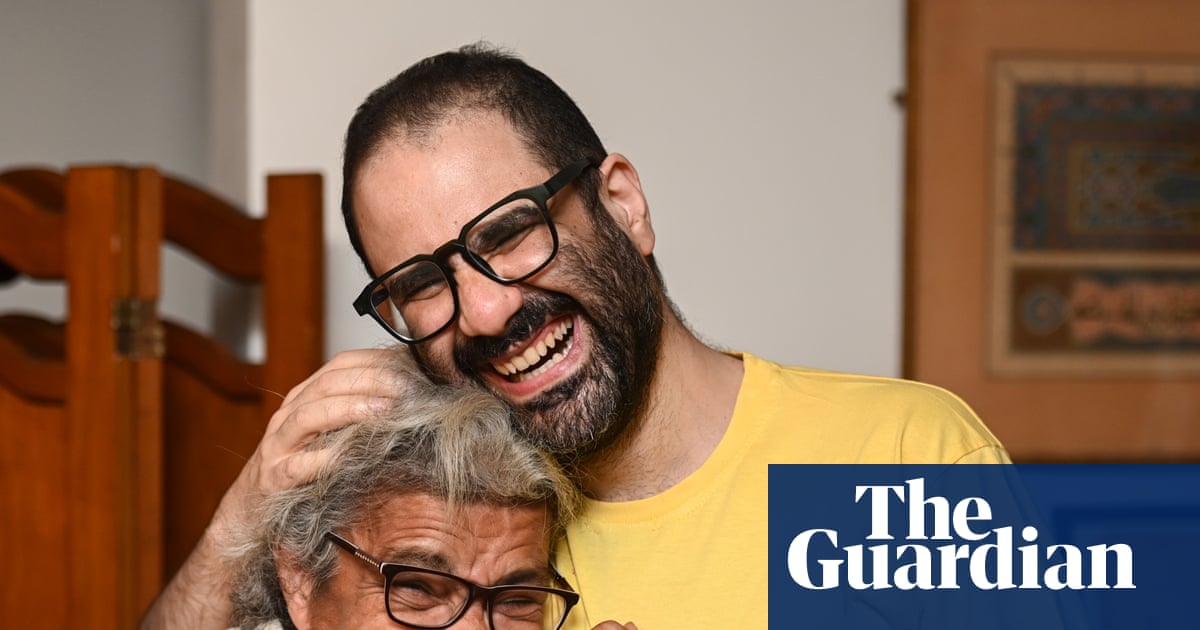British-Egyptian Activist Alaa Abd el-Fattah Blocked from Flying to UK by Egyptian Authorities Post-Pardon
 Egypt
Human Rights
Egypt
Human Rights

British-Egyptian activist Alaa Abd el-Fattah was stopped from flying to the UK by Egyptian authorities after his pardon. His family confirmed he was barred at C
British-Egyptian Activist Alaa Abd el-Fattah Barred from UK Travel Post-Pardon
British-Egyptian human rights advocate Alaa Abd el-Fattah, recently released from Egyptian custody, has reportedly been barred from traveling to the United Kingdom by Egyptian passport control. His family confirmed the denial of travel, which occurred as he attempted to fly to London earlier this week. This incident casts a shadow over the full extent of his freedom following his pardon in September.
Travel Plans Thwarted at Cairo Airport
Abd el-Fattah, a prominent writer and campaigner, had intended to journey to the UK primarily to attend several significant events, including the prestigious Magnitsky human rights awards in London. His sister, Sanaa Seif, who was due to travel with him on Tuesday morning, delivered the news during a speech at the awards ceremony itself. She recounted how, at Cairo International Airport, her brother was informed by authorities that he was not permitted to leave the country.
Despite receiving a presidential pardon from Abdel Fatah al-Sisi on September 22, which led to his release from Wadi El-Natrun prison, the precise conditions of Abd el-Fattah’s liberty, particularly his right to international travel, remained ambiguous. His family had been in ongoing discussions with Egyptian authorities regarding these specifics.
Family's Fight and Reunion Hopes
The thwarted travel plans are especially poignant given Abd el-Fattah's strong desire to reunite with his 13-year-old son, Khaled, who resides in Brighton with his mother and attends a special educational needs school. While Khaled had visited his father in Egypt post-release, Abd el-Fattah’s return to the UK has now been indefinitely delayed.
The activist's dedication to human rights was further recognized when he and his mother, Laila Soueif, were jointly honored with the Courage Under Fire award at the Magnitsky Human Rights Awards. Sanaa Seif accepted the accolade on their behalf, expressing her wish for her brother to have been present.
A History of Advocacy and Imprisonment
Alaa Abd el-Fattah's case has garnered international attention for years. His most recent imprisonment, which spanned over a decade, concluded with a pardon after he was found guilty of "spreading fake news." This charge stemmed from sharing a Facebook post alleging torture in Egyptian prisons.
His mother, Laila Soueif, undertook a grueling 287-day hunger strike, commencing in September 2024, to protest the authorities' failure to release him at the end of his previous five-year sentence. Her heroic protest pushed her to the brink of death on two occasions while she was hospitalized in London, before she finally ended her strike in July 2025.
Abd el-Fattah has already shared insights into his experience of freedom through interviews with the British and Egyptian dissident press, indicating a need for time to reflect on his future path. However, this latest restriction highlights the ongoing challenges faced by those advocating for human rights in the region.